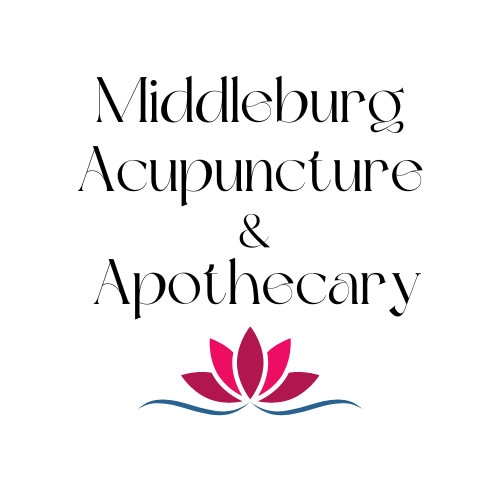
PTSD, Depression, Anxiety,
& Stress Symptoms
PTSD | DEPRESSION | ANXIETY | STRESS SYMPTOMS
PTSD
Post Traumatic Stress Disorder is a mental health diagnosis that exhibits both mental and physical symptoms after a person has gone through a traumatic event. Flashbacks, intrusive thoughts, nightmares, and sleep disorders are just a few of the symptoms experienced when diagnosed with PTSD. Backed by scientific research, acupuncture has proved itself an effective treatment for complex PTSD and other stress disorders, as well as anxiety, depression, panic attacks, and insomnia.
PTSD is associated with veterans of the military, as many soldiers who have served in combat experience trauma related to war violence. A significant amount of scientific research and psychiatric study has been devoted to finding out about PTSD and what treatments for PTSD are effective. Many military bases, such as Andrews Air Force Base in Maryland, have implemented acupuncture in their clinics to treat soldiers.
Today, we understand that PTSD can result from acute and/or long term traumatic life events such as trauma experienced from accidents, natural disasters, surgeries, assaults, attacks, abandonment, or the death of a love one. Presently, millions of Americans are living with post traumatic stress. People of all ages can experience PTSD. PTSD can result from direct trauma, or from witnessing such an event. People whose jobs involve exposure to violence or disturbing situations, such as first responders, social workers, or police officers, can also have PTSD.
When a person has experienced abuse or life-threatening danger, hypervigilence, upset, and tension becomes that individual’s state of being. Normal, everyday stress remains trapped and cannot be released with exercise, meditation, rest, or through activities we once enjoyed. If left untreated, the individual’s chronic unease can impede their overall health, relationships, career, and life goals.
Acupuncture helps patients deal with mental health issues like PTSD because it identifies and treats the connection in which emotional and mental symptoms interact with physical symptoms. Acupuncture addresses the way that trauma and negative emotions are stored in the body, sometimes causing overwhelming emotional and physical symptoms. Acupuncture and herbs are holistic treatments for PTSD that can be used as a stand-alone treatment or they can be used as an adjunct to therapy and medications to help relieve stress, physical symptoms, negative emotions, and problems with cognitive function.
Depression
A growing number of people are seeking alternatives to antidepressant medications, and new research suggests that acupuncture is a promising option. One new study found that Traditional Chinese Medicine to be as effective as antidepressants, and a different study found that acupuncture may help treat the medications' side effects.
In acupuncture, a practitioner inserts needles into the skin at points of the body thought to correspond with specific organs (right). Western research suggests the needles may activate natural painkillers in the brain; in traditional Chinese medicine, the process is believed to improve functioning by correcting energy blocks or imbalances in the organs.
A study published last fall in the Journal of Alternative and Complementary Medicine found that electroacupuncture—in which a mild electric current is transmitted through the needles—was just as effective as fluoxetine (the generic name of Prozac) in reducing symptoms of depression. For six weeks, patients underwent either electroacupuncture five times weekly or a standard daily dose of fluoxetine. The researchers, the majority of whom specialize in Traditional Chinese Medicine, assessed participants' symptoms every two weeks and tracked their levels of glial cell line–derived neurotrophic factor (GDNF), a neuroprotective protein. Previous studies have found lower amounts of GDNF among patients with major depressive disorder, and in other research levels of the protein rose after treatment with antidepressant medication.
After six weeks, both groups showed a similar improvement in symptoms, and both treatments restored GDNF to a normal concentration. But the acupuncture began to work faster, reducing symptoms more dramatically at weeks two and four than the drug did. Among the patients who got better, a higher percentage of the acupuncture recipients showed “great improvement.”
Anxiety
In my practice, anxiety and stress are a common reason for patients seeking treatment. Whether they are on medication for their condition or would like to lessen or discontinue their medication due to adverse side-effects, many patients transition and will lessen or discontinue their anti-anxiety medication.
Acupuncture addresses the anxiety itself, as well as other common symptoms associated with the condition such as insomnia, difficulty concentrating, and obsessive thinking.
In a comprehensive literature review appearing in a recent edition of CNS Neuroscience and Therapeutics, it was proved that acupuncture is comparable to cognitive-behavioral therapy (CBT), which psychologists commonly use to treat anxiety (Errington-Evans, 2011). Another study published in the Journal of Endocrinology in March 2013 discovered stress hormones were lower in rats after receiving electric acupuncture (Eshkevari, Permaul and Mulroney, 2013).
Stress Symptoms
Acupuncture is an effective treatment that involves the insertion of extremely fine needles into the skin at specific acupuncture points. It is known for relieving pain within the body, but acupuncture can also relieve stress and anxiety. When stress is extreme and/or has become a habituated state of upset, our emotional health and physical well-being begins to suffer. If left untreated, these symptoms may develop into anxiety, depression or more severe illnesses such as high blood pressure and digestive disorders. Acupuncture can help reduce stress and anxiety by releasing unnecessary tension and excessive thinking. Many patients report feeling relaxed, breathing deeper, and that their mind quieted while on the table.




